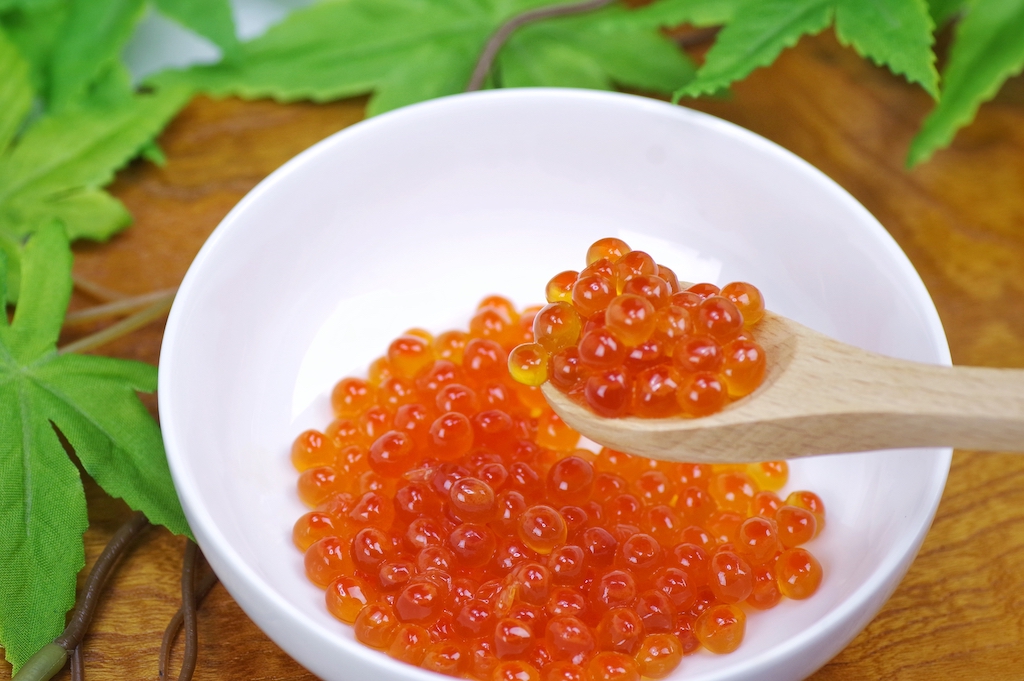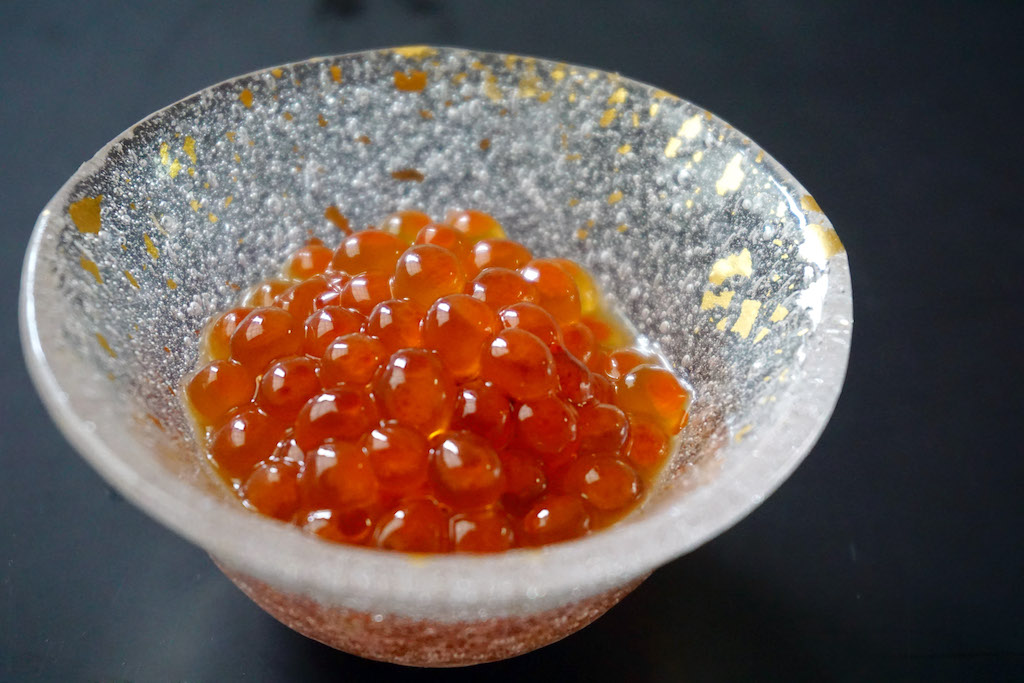Learn Japanese: "Ikura" Meaning & Usage | How Much & Salmon Roe
Ever found yourself pondering the price of that exquisite sushi roll or the total cost of your shopping spree? The Japanese language offers a concise and elegant solution: Ikura, a word that encapsulates the essence of "how much."
Today, our linguistic journey delves into the nuanced world of ikura (\u3044\u304f\u3089), a versatile Japanese term primarily translating to "how much." While it occasionally steps into the domain of "how many," our focus remains steadfastly on its "how much" application. This journey transcends mere vocabulary; it's about grasping a fundamental aspect of Japanese communication and culture. We'll explore the core of "ikura," its usage in sentences, and its significance in everyday conversations. This word goes beyond a simple translation. It acts as a bridge, connecting us to the heart of Japanese interactions, allowing us to ask about cost, quantity, and value with ease.
Lets begin with the basics. The term ikura can be used in various contexts, often serving as a query about the price of an item. For example, you might ask, Ikura desu ka? (\u3044\u304f\u3089\u3067\u3059\u304b?) which translates directly to "How much is it?" This phrase is your key to understanding the cost of anything from a cup of coffee to a new car.
- Jasmine Crockett Family Parents Background All You Need To Know
- Unveiling Muriels Wedding Insights Toni Collettes Transformation
Before we delve into the intricacies of "ikura," let's clarify its position within a sentence. It frequently appears at the beginning of a question, immediately followed by the item or service you're inquiring about. This direct placement ensures clarity and efficiency, making your question immediately understood. The beauty of "ikura" lies in its simplicity. It's a word that effortlessly blends into everyday speech, facilitating smooth and effective communication.
Now, let's move on to some practical examples. Consider this sentence: "Ikura de mo totte kudasai." (\u3044\u304f\u3089\u3067\u3082\u3068\u3063\u3066\u304f\u3060\u3055\u3044). This translates to "Please take as many as you like." Here, "ikura" is used in a different context, showcasing its adaptability. It's a testament to the word's versatility, allowing it to express various nuances of quantity and extent. We can also use this word to emphasize how difficult something is, or how much of something is present. Ikura benkyou shite mo mada muzukashii (\u3044\u304f\u3089 \u52c9 (\u3079\u3093) \u5f37 (\u304d\u3087\u3046) \u3057\u3066\u3082\u307e\u3060 \u96e3 (\u3080\u305a\u304b) \u3057\u3044) which means "However hard i study it, it is still difficult". Ikura ketten ga atte mo aishiteiru. (\u3044\u304f\u3089 \u6b20 (\u3051\u3063) \u70b9 (\u3066\u3093) \u304c\u3042\u3063\u3066\u3082 \u611b (\u3042\u3044) \u3057\u3066\u3044\u308b) means However many shortcomings you have, I love you. These sentences highlight the flexibility of "ikura," demonstrating its ability to convey different shades of meaning, from quantity to the extent of an action or emotion.
Moreover, "ikura" can be a conjunction, adverb, or even an adjective depending on the context. This multifaceted nature adds depth to your communication skills, enabling you to articulate your thoughts with precision and elegance. The more you explore these nuances, the more fluent and natural your Japanese will become.
- Giancarlo Espositos Net Worth In 2024 Breaking Bad Beyond
- Anna Wintour Meghan Markle Whats Really Going On
Lets examine another example to reinforce our understanding. The straightforward phrase Ikura desu ka? (\u3044\u304f\u3089\u3067\u3059\u304b) which translates to "How much is it?" This phrase is your starting point for any price inquiry. Consider it your passport to the world of Japanese commerce. Knowing this phrase empowers you to navigate shops, restaurants, and markets with confidence.
The ability to ask about the cost of something is indispensable when you're in a new place, and "Ikura desu ka?" is your essential tool. Imagine yourself at a local market. You see a vibrant array of goods, and you're curious about the price of a beautifully crafted item. All you need to say is "Ikura desu ka?" and you'll get the information you need.
In addition to its function as a question about the price, "ikura" has another, exciting meaning. It is also the name of a Japanese delicacy, salmon roe. Known for its briny and oily taste, ikura is a culinary gem used in sushi, rice bowls, and even steamed egg custard. This dual identity underscores the word's rich cultural significance. You're not just learning a word; you're delving into the heart of Japanese cuisine and culture.
Before we go any further, its useful to have a firm understanding of what constitutes ikura desu ka. Essentially, it is a Japanese phrase that's a direct equivalent to "how much." It's a fundamental expression, easily understood and straightforward in its meaning. Its this very simplicity that makes it so powerful.
To further dissect ikura desu ka, we can look at its individual elements. The ikura component acts as the question word, while desu ka is a polite way to form a question in Japanese. The beauty of Japanese is its simplicity.
Beyond the basic definition of "how much," "ikura" also offers a glimpse into Japanese culinary traditions. The word "ikura" also refers to salmon roe, a prized ingredient in Japanese cuisine, that is very popular in dishes like sushi and rice bowls. Knowing this dual meaning elevates your understanding. You'll no longer see "ikura" as just a word; it becomes a symbol of both language and culture.
As we continue our journey, remember the origins of the name "ikura." It is believed to have come from the Russian word "ikra," which simply means "fish eggs". This linguistic connection emphasizes how cultural and culinary traditions intertwine.
When we talk about ikura, we need to understand its origin, how it is produced, and different available varieties, and how it compares to the other types of fish eggs that are often mistaken for it. The journey from egg to plate is a testament to the skill and care of those involved.
Production begins by carefully cutting the belly of the female salmon from the pectoral fin to the anus. The ovaries are then gently removed and processed. The roe is then typically brined in salt before being frozen at very cold temperatures, in order to preserve its flavor and quality. Soy sauce is sometimes used as a substitute.
Ikura sushi is a great example of how "ikura" is a sign of luxury and good taste. Its presence in dishes makes them look better and tastes exquisite. This versatility highlights its esteemed status and makes it one of the most sought-after ingredients.
Ikura is a gateway, and its meaning transcends the physicality of salmon roe, symbolizing the exquisite flavor and the luxury and fine dining experience. Its a window into Japanese traditions, a taste of culture, and a reminder that language is a vibrant reflection of our world.
In the world of Japanese, even the simplest phrases reveal layers of meaning. Whether you're asking the price of something or enjoying a delicious sushi roll, "ikura" enriches your experience. The next time you hear "ikura," remember the journey that this single word represents. It's a journey of language, culture, and taste.
| Aspect | Details |
|---|---|
| Definition in Japanese | \u3044\u304f\u3089 (ikura) |
| English Translation | How much, How many |
| Part of Speech | Conjunction, Adverb, Adjective |
| Primary Usage | Asking about the cost of something |
| Secondary Meaning | Salmon Roe (Japanese cuisine) |
| Origin | Believed to be derived from the Russian word "ikra" (fish eggs) |
| Example Sentence | \u3044\u304f\u3089\u3067\u3059\u304b (ikura desu ka) - How much is it? |
| Related Words | \u3069\u3093\u306a\u306b (donna ni) - no matter how much |
Delving into the origins of "ikura" illuminates its remarkable journey. The Japanese did not widely embrace salmon until a successful Norwegian marketing campaign in the 1980s. Interestingly, the word "ikura" is believed to have its roots in the Russian word "ikra," a term simply meaning "fish eggs." Today, however, "ikura" primarily refers to the eggs of salmon. This linguistic connection provides deeper insight into the evolution of food, language, and cultural exchange.
This focus on fresh roe has influenced the ikura makers, offering benefits in the reduction of roe available for ikura production. The biggest challenge for makers is the marketing strategy the retailers use. This underscores the role that both traditional methods and modern commerce play in the ikura's success.
In the realm of sushi and sashimi, "ikura" has become an essential element. Its presence in dishes like ikura sushi, ikura donburi (rice bowls), and ikura chawanmushi (steamed egg custard) highlights its versatility and esteemed status. In many ways, "ikura" transcends the mere physical presence of salmon roe. It serves as a symbol of luxury and exquisite flavor, transforming a simple dish into a culinary experience.



Detail Author:
- Name : Sadye Rowe
- Username : yadira.hirthe
- Email : hartmann.winfield@gmail.com
- Birthdate : 1971-12-08
- Address : 652 Hamill Crossroad Thadbury, MA 37499-7690
- Phone : 907.980.0025
- Company : Kovacek PLC
- Job : Data Processing Equipment Repairer
- Bio : Tempore provident perferendis mollitia. Ut pariatur iste accusamus aspernatur. Et autem fuga amet esse. Mollitia enim iste omnis id quo molestias. Nihil deserunt tempora saepe eos.
Socials
facebook:
- url : https://facebook.com/rosiehilpert
- username : rosiehilpert
- bio : A est non voluptatem facilis aut recusandae voluptatem.
- followers : 4986
- following : 2669
linkedin:
- url : https://linkedin.com/in/rosiehilpert
- username : rosiehilpert
- bio : Quia aut dignissimos explicabo consequatur.
- followers : 3814
- following : 2500
twitter:
- url : https://twitter.com/rosiehilpert
- username : rosiehilpert
- bio : Maiores et qui facilis eos magnam in harum. Eum ut id et non nihil sunt quis.
- followers : 250
- following : 53
tiktok:
- url : https://tiktok.com/@hilpert2001
- username : hilpert2001
- bio : Totam consequatur vel rerum id quibusdam vel.
- followers : 2442
- following : 1183